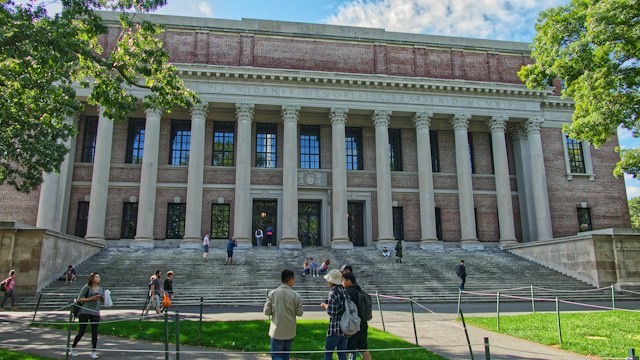A recent firestorm has erupted at Harvard University, long revered as an esteemed center of knowledge. In an alarming turn of events, students have mustered the courage to voice their first-hand accounts of shocking incidents of harassment and discrimination. As the globe's attention shifts towards the simmering tension between Israel and Gaza, Harvard's Muslim, Palestinian, and Arab students stand together, declaring their reality of fear, intimidation, and outright attacks within the university's walls.

A Veil Fails to Shadows Discrimination
In bringing these shocking allegations to light, a Muslim civil rights organization has amplified the students' anguish and fear. It turned heads towards the iconic crimson emblem of the university and spotlighted the institution's apparent lack of urgency in student safety matters, prompting uncomfortable questions.
Declaring their claims of discomfort, fear, and harassment at the prestigious academic institution, the students lodged a formal complaint with the Civil Rights Office of the U.S. Department of Education. Muslim, Palestinian, and Arab students detailed incidents of being shadowed, confronted, and even physically assaulted - this distressing fresco of harassment extends across the verdant lawns, lecture halls, and pristine libraries of the illustrious university.
Campus Echoes with Accusations
Moreover, this is far from the first time Harvard has grappled with allegations of anti-religious sentiments. Earlier, the university was rocked by a lawsuit from Jewish students who drew attention to a simmering undercurrent of unchecked antisemitism.
These twin testimonies paint a distressing picture - the prestigious alma mater allegedly turning a blind eye to religious discrimination and harassment within campus cul-de-sacs. The student's lawyer, Christina Jump, argues that these parallel narratives are bone-chilling corroboration of the university's wavering commitment to religious freedom and safety.
Caught in an Unsettling Spotlight
Specific incidents that unfolded under the university's watch were singled out in their complaint. Prominent amongst these were the students wearing a keffiyeh, a symbol of Palestinian heritage. Wearing this traditional scarf, a simple yet poignant expression of cultural identity, was met with anything but respect.
Instead, these students found themselves barraged with threats, insults, and even physical assaults by fellow peers and university faculty. Alarmingly, the hassle escalated to attempted physical harm with objects thrown or poured on them. Still, the administration's response remained worryingly muted.
What Will It Take to Awaken Change?
While the university's silence prevails, the university's interim leader, Alan Garber, has announced new task forces to combat Islamophobia and antisemitism. The community views this move with tentative relief and skeptical curiosity - and waits for earnest action to follow these words.
As they embark on the uphill journey of filing a complaint with the Department of Education, the students hope their brave initiative will ripple into a wave of change within the university culture.
Their plea casts its hopes on Harvard - urging a thorough investigation, more robust protection for students suffering public defamation, and a commitment to ensuring that the students feel safe in what should be their sanctuary of learning.
The critical question remains - will Harvard step up to replace its silence with meaningful action? Only time will tell. Until then, the university's students, faculty, alums, and the world hold their breath, awaiting a display of leadership that steers the iconic institution back to its ethos of inclusivity, respect, and commitment to its diverse student community's safety.




